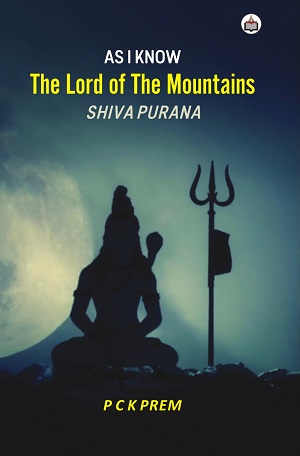Apr 18, 2025
Apr 18, 2025
by P C K Prem
As I Know: The Lord of the Mountains – Shiv Purana: 154
Kamya rites and rituals form another significant segment of teaching of Upamanyu where he carefully speaks about kamya karmas, which bless the devotee in the present life and life beyond
 “Human beings do a large number of duties – optional and obligatory, which entail an objective – to gain material benefits or inner enrichment depending upon the mental level. It depends upon the choice of individual. Either you see the fulfillment or you are near realisation. If objective is noble, it carries the principles of dharma.
“Human beings do a large number of duties – optional and obligatory, which entail an objective – to gain material benefits or inner enrichment depending upon the mental level. It depends upon the choice of individual. Either you see the fulfillment or you are near realisation. If objective is noble, it carries the principles of dharma.
Nitya karmas are routine or daily acts as a sacred duty toward the Vedas, deities, gods, preceptors and toward the pitres or ancestors. Naimitika Karmas are occasional functions depending upon the shradha or devotion and these can be religious or social. Kamya indicates desires and one performs these acts with a purpose to gain wealth and joy in life i.e. wealth and pleasures become prominent objectives. Such acts are rites or rituals when unspecified agents work to advise man to act and also a few laws of dharma guide men of the world.”
The monk continues to narrate briefly about acts of man in right perspective.
“Nisiddha Karma does not get sanction of saints or scriptures a man should understand or else sins visit man. Prayaschitta Karma connotes remorse and penitence for acts that are not virtuous. It is also to minimize the impact – a kind atonement through performance of noble karmas, yajnas or worship or prayer.”
The monk clearly stipulates further, “The audacious and apathetic man even if does right karma it does not bring the desired reward. Devotion is compulsory to get blessing of Shiva and the expected benefits. Japa of five-syllable mantra is a boon to a devotee. Mantra is the lord one ought to know. If a man performs karmas and does his duty as prayer and worship with right mental, physical and oral mode and adheres to the manner as prescribed in scriptures, and undertakes japa of five-syllable mantra with a strictly religious approach and also takes into consideration the significance of purity of mind, body, place and time it is extremely good and right. Though a very difficult process yet he attains the desired objective if he makes sustained efforts.”
Continued to Next Page
10-Aug-2024
More by : P C K Prem